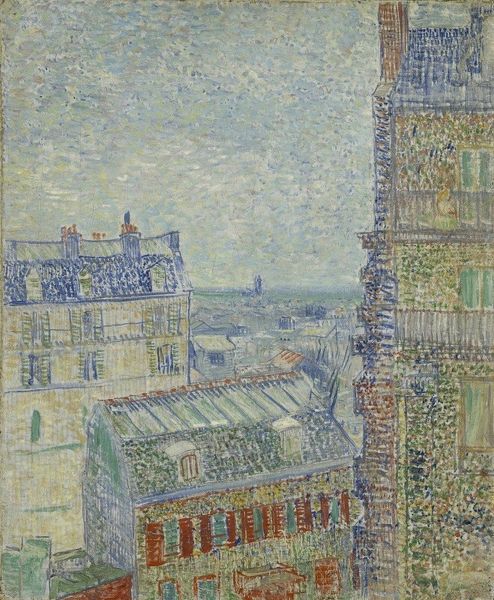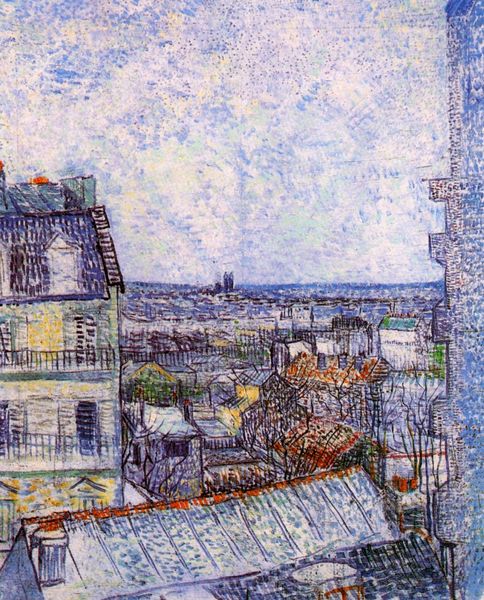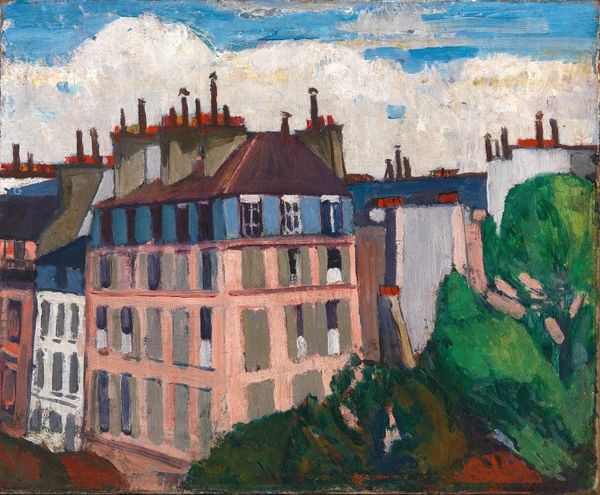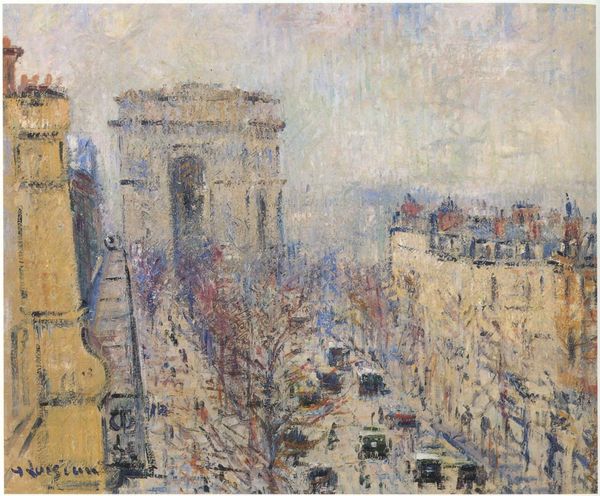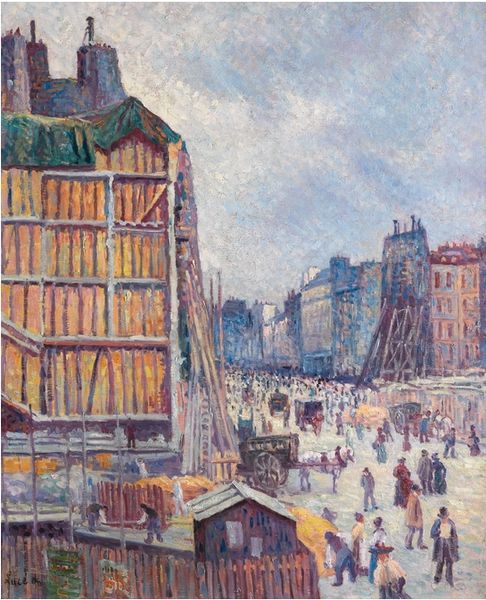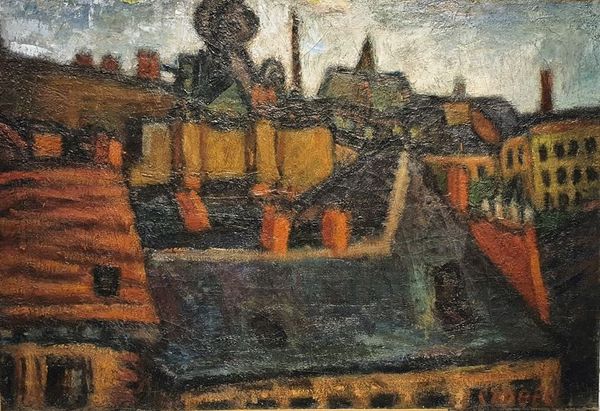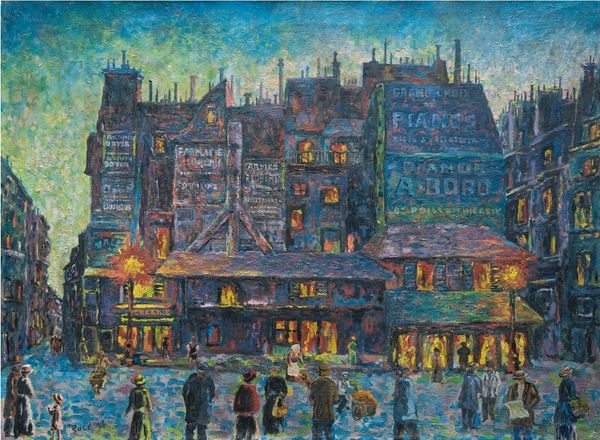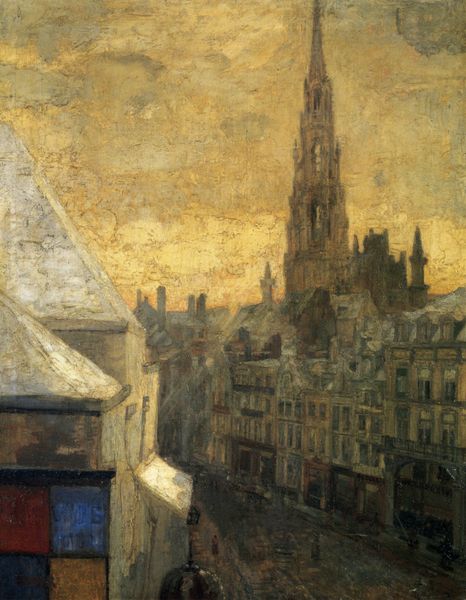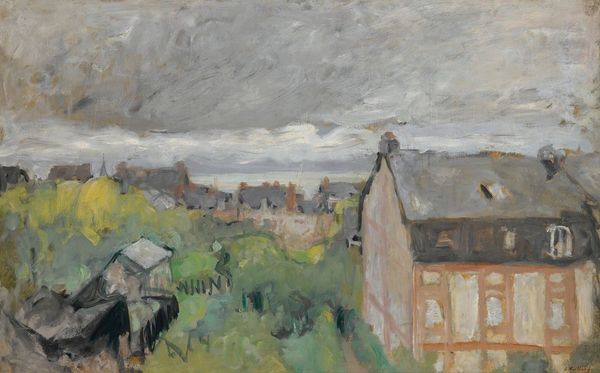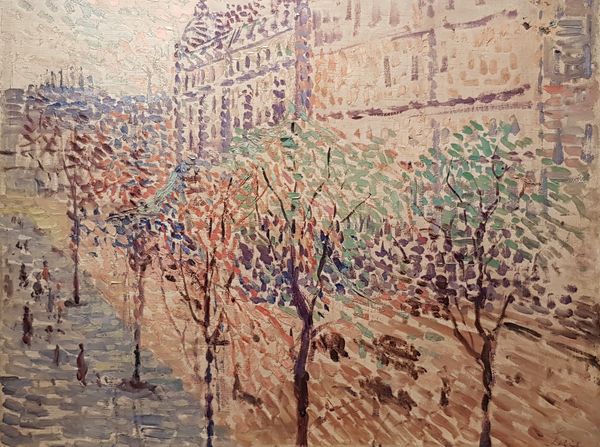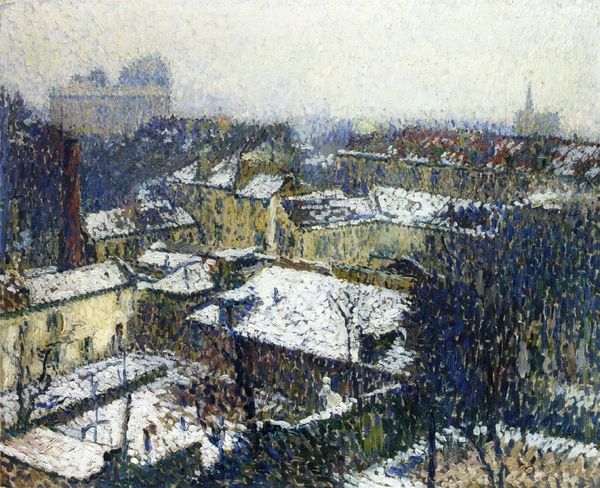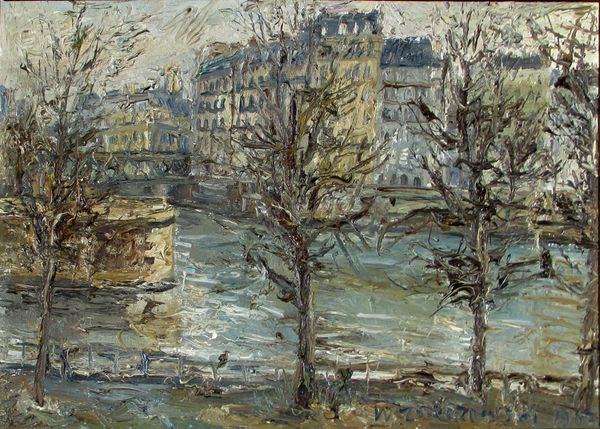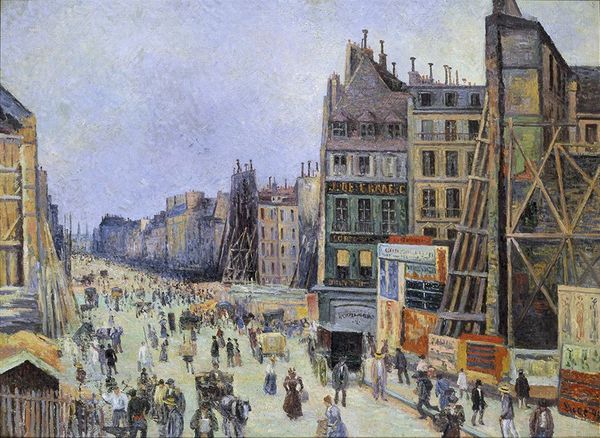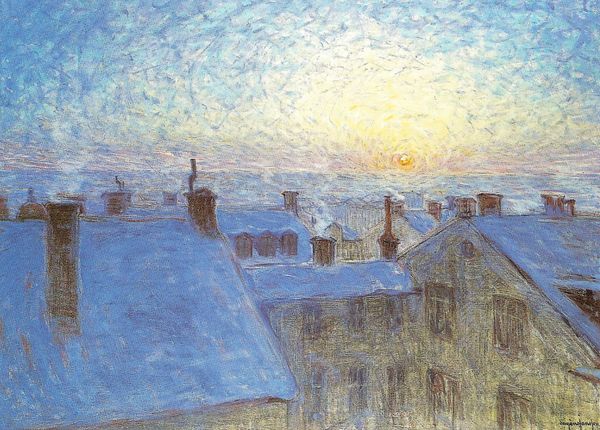
Copyright: Public domain
Curator: Here we have Van Gogh’s "View of Paris from Vincent's Room in the Rue Lepic," painted in 1887. It is currently housed at the Van Gogh Museum in Amsterdam. Editor: My immediate feeling is one of slight unease. There’s something about the close proximity to the buildings, the high vantage point, that creates a sense of being trapped, perhaps reflecting Van Gogh’s own internal state at the time. Curator: It's intriguing you say that. Considering Van Gogh’s stay in Paris was supposed to be a period of growth, influenced by Impressionism and Post-Impressionism, there is some melancholy present. The building facades feel imposing. I can’t help but see how he depicts the symbolic meaning behind domestic spaces. Editor: Absolutely. And what do you make of the obscured view? It's a cityscape, but not the triumphant cityscape we might expect. There’s a limited perspective, an obstructed horizon. It almost feels like a deliberate choice to convey social and emotional constriction. How much of it reflected social conditions around Parisian living? Curator: That reading resonates deeply. Think about the symbol of windows – they should offer possibility and connection with the outside world. But in this piece, they seem more like barriers, individual cells in a larger societal structure, trapping lives and aspirations, which leads to social critique. The impasto, thick paint, also accentuates the buildings’ solid and impassable nature. Editor: The way the buildings loom, with their geometric presence, against the swirling sky hints, maybe, to a city and its societal pressures beginning to overtake nature and rural settings. Curator: That’s a fascinating point. The turbulent sky almost feels like a premonition of his later, more expressive works, foreshadowing the emotional intensity to come, but also as an acknowledgment of what cities are made of: nature and culture coexisting in strange ways. It leaves me considering how our environment shapes us, and how we shape it. Editor: Indeed. Ultimately, "View of Paris" becomes a powerful statement about the complexities of urban existence and the individual’s place within it, as relevant today as it was then.
Comments
No comments
Be the first to comment and join the conversation on the ultimate creative platform.
